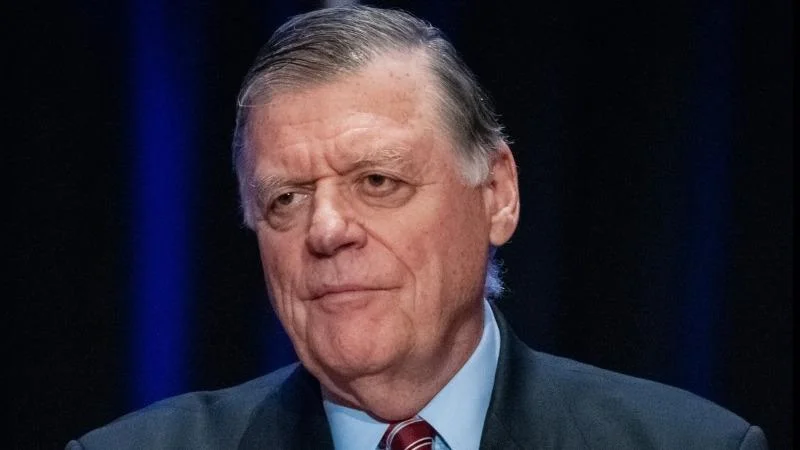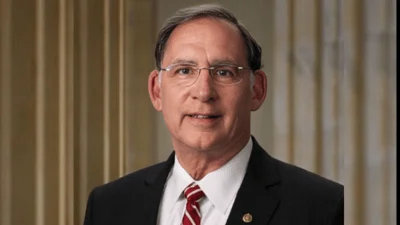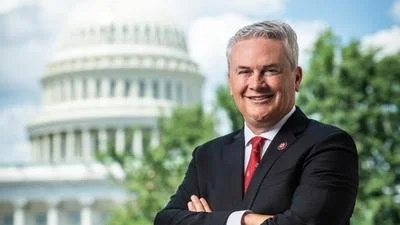House appropriators have expressed growing frustration over the ongoing government shutdown, which has now entered its 17th day. Members of the House Appropriations Committee, known as cardinals, say their work on full-year funding bills is stalled until the government reopens.
The House has already passed three appropriations bills—Military Construction/Veterans Affairs, Energy and Water, and Defense. All 12 bills have cleared the Appropriations Committee, but several were expected to face opposition before reaching a floor vote prior to the September 30 fiscal year deadline.
Rep. David Valadao (R-CA), who chairs the Legislative Branch subcommittee, said progress was being made with Senate Republicans and Democratic appropriators before the shutdown began. "Every day that goes by, we waste lots of valuable time for finishing out our work as appropriators, whatever that may be: our individual bills or some sort of minibus, and even other options that are being talked about after the government shut down, if we get into any or requests that a lot of us are interested in doing," Valadao said. "But that's all a separate conversation until we get the government open."
House Speaker Mike Johnson (R-LA) has kept the House on recess since passing a continuing resolution (CR) on September 19. He maintains that "the House did its job," expressing frustration at the current standstill. "People are upset. I'm upset. I'm a very patient man, but I am angry right now," Johnson said last week during a press conference.
Some Republicans and all Democrats have called for the House to reconvene to discuss appropriations and other issues. However, House leadership insists there is nothing more they can do until the government reopens.
Rep. Mark Amodei (R-NV), cardinal for Homeland Security appropriations, commented on the situation: "What would help appropriators are colleagues who recognize our fundamental duty to uphold our Article I responsibilities. If they can't see how damaging a shutdown is to the American people, we're not going to get very far."
Johnson has advocated for returning to a traditional funding process involving bipartisan negotiations once the government reopens. He communicated this directly to Sen. Patty Murray (D-WA), ranking Democrat on the Senate Appropriations Committee.
Democrats have pushed for Republicans to agree to permanently extend expiring Affordable Care Act subsidies as part of CR negotiations. Several Republican cardinals argue that such policy issues do not belong in appropriations discussions.
Rep. Hal Rogers (R-KY) and Rep. David Valadao both noted that before the shutdown, House Appropriations Chairman Tom Cole (R-OK) and Senate Appropriations Chairwoman Susan Collins had productive relations with their Democratic counterparts.
"And the Democrats moved the goal post, and a clean CR wasn't good enough for them anymore," Valadao said.
The continuing resolution passed by the House received near-unanimous Republican support—a rare occurrence—demonstrating unity between conservative members and party leadership. Rep. Andy Harris (R-MD), chairman of the Freedom Caucus and cardinal for Agriculture appropriations, stated: "Obviously we are waiting to hear what the Senate does and hopefully the Senate Democrats decide to change their mind and reopen the government, but until then, the Republicans are standing together and just waiting for the Democrats to reopen the government so we can get down to the negotiations we need to do to pass our appropriations bills and all the other issues in Congress."
Rep. Mike Simpson (R-ID), cardinal for Interior appropriations, added: "This is one of the cleanest CRs I have ever seen. Passing a short-term funding extension brings us one step closer to restoring regular funding, but unfortunately, Democrats do not want that."
Rep. John Carter (R-TX), cardinal for Veterans Affairs appropriations, echoed this sentiment: "All of this could be solved if Democrats would just stop the partisan politics."
According to Rep. Chuck Fleischmann (R-TN), cardinal for Energy and Water appropriations: "The whole reason the House did not waste time and took action to pass the clean, nonpartisan CR on September 19 was to avoid a pointless government shutdown and allow us plenty of time before November 21 to get all the appropriations bills done."
As November 21 approaches—the date when current funding expires—there is pressure on lawmakers to resolve outstanding funding issues or consider another CR extension. Some cardinals believe they could meet this deadline for certain bills but expect larger ones may require more time.
Rep. Mario Diaz-Balart (R-FL), cardinal for National Security appropriations, said: "We cannot negotiate anything with the government closed. If Chuck Schumer reopens the government, we could start moving the first bills today."
In recent days there have been no hearings or new votes in either chamber related to appropriations during the shutdown period.
Reps. Ken Calvert (R-CA) and Robert Aderholt (R-AL), cardinals for Defense and Labor/HHS appropriations respectively, emphasized that staff continue monitoring agency operations despite halted legislative activity. Aderholt stated: "Our work hasn't stopped, and we're ready to move the moment the Senate acts. We don't need a new CR date; we need the Senate to function."








